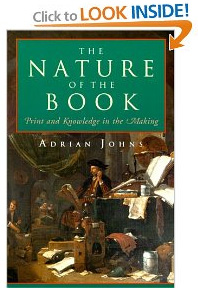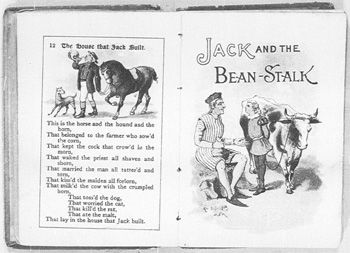In that marvelously stilted, creepy and bigoted 1950s way, this little slice of propaganda shows how a family celebrates Thanksgiving. I’m most interested in the comment about being thankful for not ‘working slave hours.’ Interesting bit of thankfulness, especially since every thankful person in the film is white.
Tag Archives: history
1000 Years of Polish History Turned Into 8 Minutes of Xbox Hell
Here’s how you obfuscate 1000 years of history. You animate it into an unintelligible eight minutes for an expo in Shanghai because certainly those Chinese are interested in how the Poles won their freedom. But the real problem with this animation that seems to place Poland’s entire history squarely into an Xbox game is the ending. All that history brings us up to the overbearing and rather creepy final images of the great corporate towers ascending into the heavens, completely taking over and creating the corporate citadel of wonder that houses only cubicle workers and offers relaxing courtyards where business people can take a mandatory lunch. It’s as if the only thing the western world can figure out to do with cities anymore is to turn them into gargantuan corporate business parks unfit for any human habitation.
Documentary: Hollywood in the Beginning
The Nature of the Book
 I sat down with my Kindle e-reader on Saturday morning to read the Los Angeles Times. There was an article about an L.A. used bookstore called Iliad Books. Sounded nice. So I went. What should I find but a section of books about books and publishing. There was a copy of The Nature of the Book: Print and Knowledge in the Making by Adrian Johns. The author’s main thrust is to examine how books in early modern England influenced and largely caused the development of the modern scientific method and the general acquisition and spread of knowledge. He wonders why readers assume that books are accurate and fixed. This is an interesting inquiry in light of the recent changes in publishing which involve ever-changeable electronic publishing and web postings. The history of the effort to make books fixed and true representations of their authors’ intentions and ideas is a fascinating one. It includes an analysis of widespread piracy that dogged publishers of books from the very beginnings of printed material.
I sat down with my Kindle e-reader on Saturday morning to read the Los Angeles Times. There was an article about an L.A. used bookstore called Iliad Books. Sounded nice. So I went. What should I find but a section of books about books and publishing. There was a copy of The Nature of the Book: Print and Knowledge in the Making by Adrian Johns. The author’s main thrust is to examine how books in early modern England influenced and largely caused the development of the modern scientific method and the general acquisition and spread of knowledge. He wonders why readers assume that books are accurate and fixed. This is an interesting inquiry in light of the recent changes in publishing which involve ever-changeable electronic publishing and web postings. The history of the effort to make books fixed and true representations of their authors’ intentions and ideas is a fascinating one. It includes an analysis of widespread piracy that dogged publishers of books from the very beginnings of printed material.
Thinking about the nature of books and their history, along with the underworld of book manipulation, piracy, copyright, and the conveying of knowledge is essential as publishing undergoes its greatest changes since the beginnings of the printed page.
Where Do Fairy Tales Come From?
 The traditional notion of where fairy tales come from suggests that people like the Brothers Grimm listened to oral folktales handed down through the generations and wrote them down with little embellishments. But now, in a book called Fairy Tales: A New History, Ruth B. Bottigheimer argues that fairy tales have a much more literary genesis than has been commonly thought. The Chronical Review has an interesting article about the different theories on the origin of some of the world’s most retold stories. The article points out how confusing and complex the history of fairy tales becomes when you consider that many of the most familiar tales are shared across different cultures. Jack Zipes, a leading translator and adapter of fairy tales says that “It’s absurd to create a dichotomy. The literary and the oral thrive off one another.”
The traditional notion of where fairy tales come from suggests that people like the Brothers Grimm listened to oral folktales handed down through the generations and wrote them down with little embellishments. But now, in a book called Fairy Tales: A New History, Ruth B. Bottigheimer argues that fairy tales have a much more literary genesis than has been commonly thought. The Chronical Review has an interesting article about the different theories on the origin of some of the world’s most retold stories. The article points out how confusing and complex the history of fairy tales becomes when you consider that many of the most familiar tales are shared across different cultures. Jack Zipes, a leading translator and adapter of fairy tales says that “It’s absurd to create a dichotomy. The literary and the oral thrive off one another.”
Purchase Fairy Tales: A New History (Excelsior Editions)

Poetry Through the Ages
 Poetry Through the Ages is an excellent site that offers clear and concise explanations of different poetic forms, a general history of poetry and a simple guide to reading and appreciating difficult poems.
Poetry Through the Ages is an excellent site that offers clear and concise explanations of different poetic forms, a general history of poetry and a simple guide to reading and appreciating difficult poems.
“When a poem arises, it feels like the bosom of the poet lifts up and births the spoken or written moment. The point of origin lies at the furthest depths of the poet, often calling into play ancestral memories, divine or universal inspiration, and insights or truths that “magically” resonate with the reader.”